Hiero 12.2 Release notes
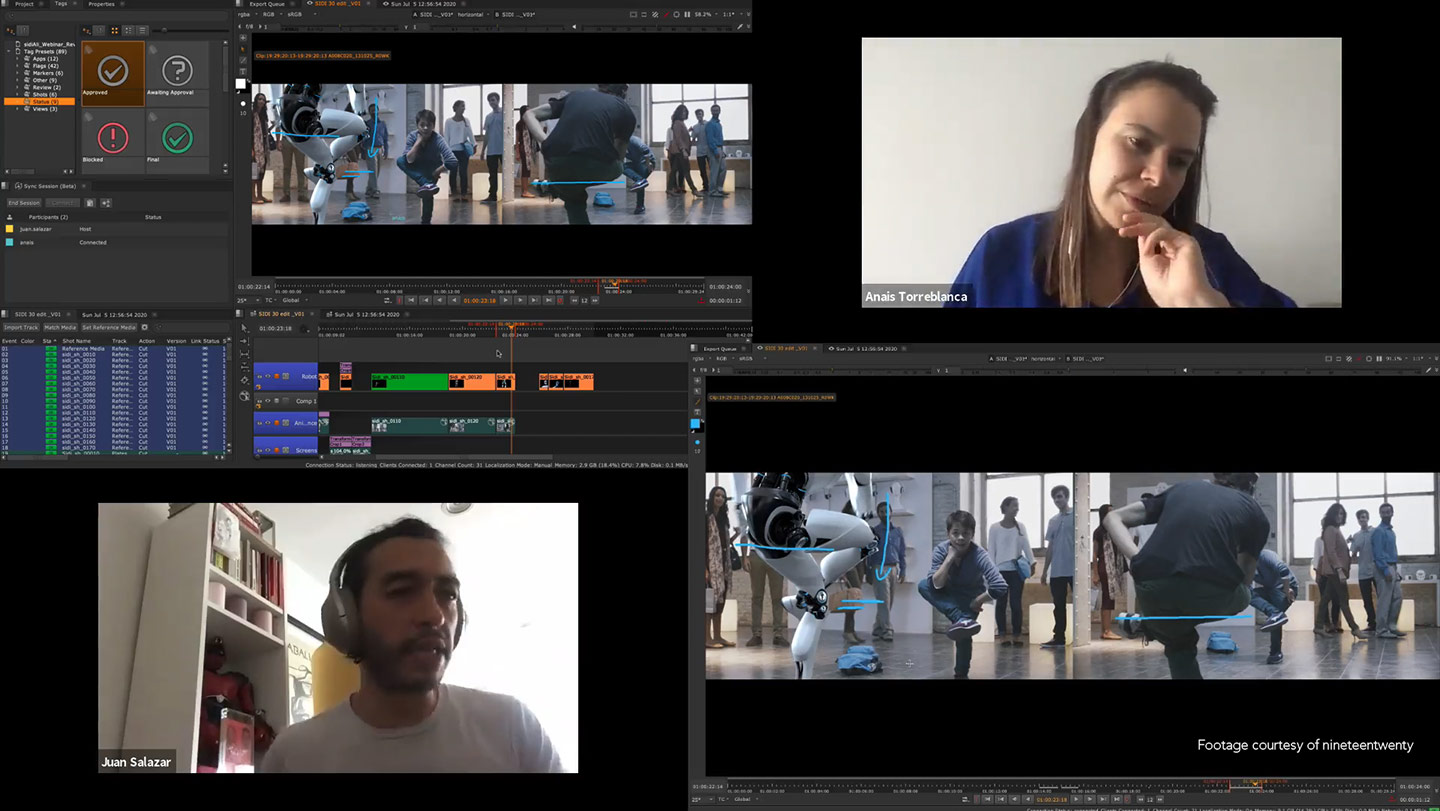
SyncReview (Beta)
Remote work is more important than ever, that’s why we’ve introduced the first implementation of SyncReview in Nuke 12.2. Giving teams the ability to sync multiple sessions of Nuke Studio, Hiero and HieroPlayer together and allowing two or more users in multiple locations to review and annotate footage collaboratively. Whether connecting to a network storage, cloud storage like DropBox, or working with localized files, all participants have access to live playback and viewer controls, soft effect parameters and toggling between versions. Plus, push updates allow users to stay in sync with the session. The number of users and resolution is only limited by your hardware and bandwidth.
As a result of this work, the Hiero Python API has been expanded in three main areas: controlling the viewer, project loading and saving so you can further customize your workflow. We have also added callbacks in various areas like annotations and version changes.
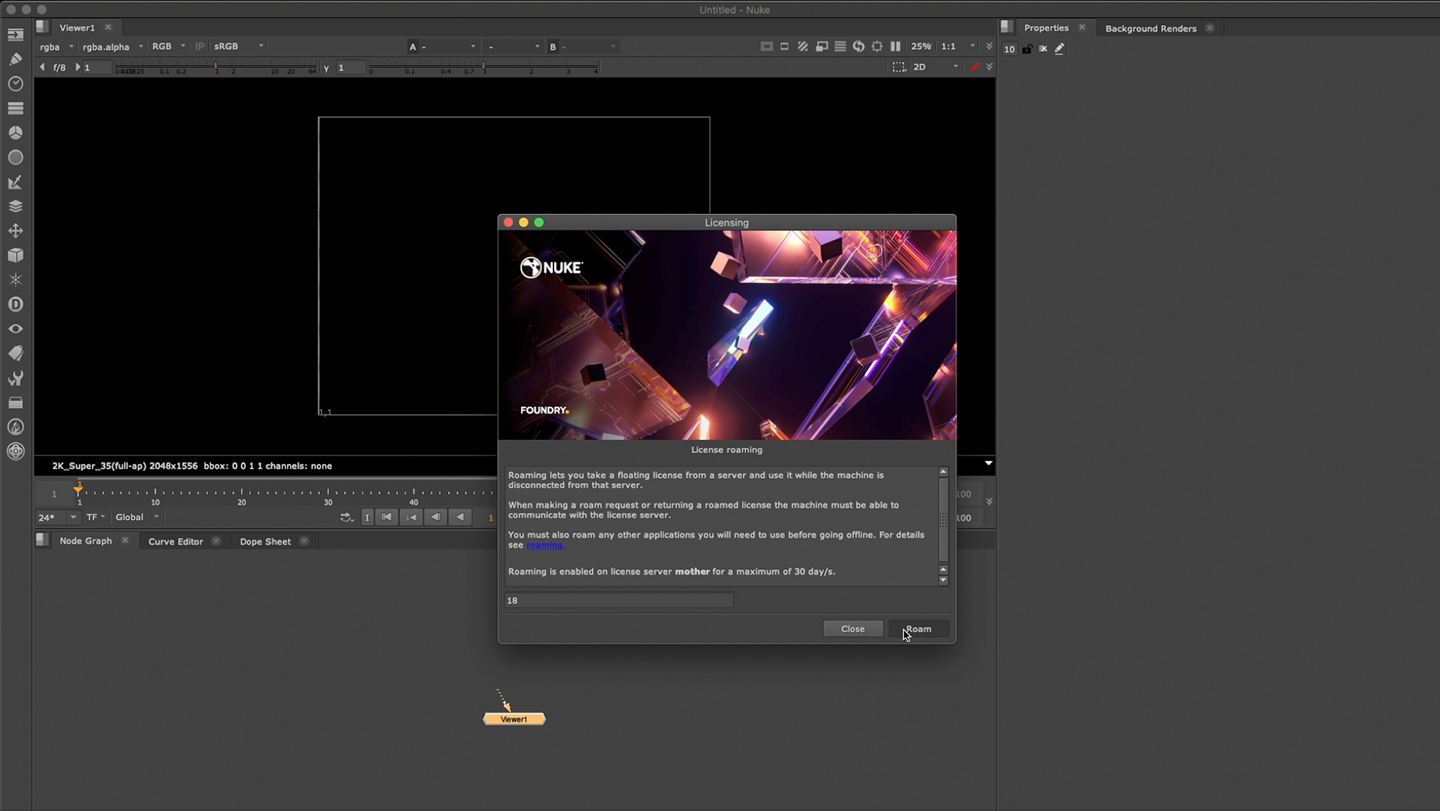
Floating License Roaming
Customers with floating licenses can now ‘check out’ a time-limited floating license, making it easier for artists working offline or without access to their license server. These licenses can be checked out for a maximum of 30 days and are available for current Nuke, NukeX, Nuke Studio and Hiero interactive licenses. This requires a license with roaming enabled, please contact your account manager or apply online to request an updated license.
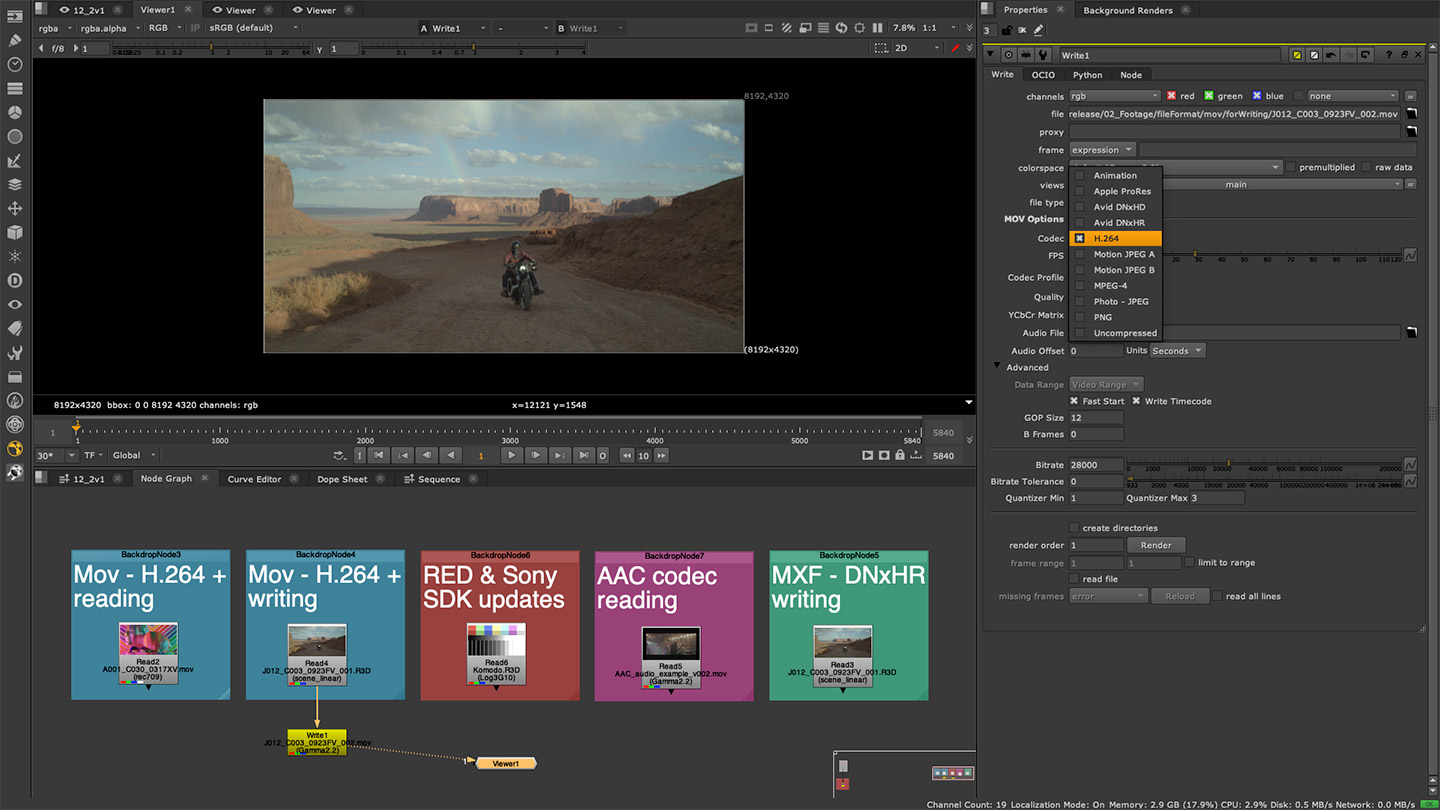
New QuickTime Support
Offering a more stable system for working with QuickTimes, Nuke 12.2 introduces a new MOV Reader and Writer, replacing the previous 32-bit and 64-bit QuickTime Read and Write support with a more stable system and streamlined UI. This update introduces broader QuickTime codec support across operating systems, including updated, more performant H.264 encoding across Windows, macOS, and Linux.
As a result, some of the older QuickTime codecs will no longer be supported. See the release notes for more details on codec support.
Additional file format support
Extended DNxHR Support
Continuing the work on DNxHR support, exporting DNxHR .movs has been added to the Nuke family, and DNxHR MXFs added to Nuke Studio and Hiero. This brings the timeline products to parity with functionality added to Nuke in Nuke 12.1.
Camera file format updates
RED SDK update to version 7.3 adding support for the latest Komodo camera. Workflows with RED footage have also been improved, from displaying the relevant SDK info on the Read node to advanced options using RED’s Chroma Noise Reduction. A new IPP2 custom mode gives you full control of your colorspace and gamma curve, something which is not typically controllable in a standard IPP2 image pipeline.
Sony SMDK version has also been upgraded.
ACC Encoded Audio Support
Nuke Studio, Hiero and HieroPlayer will now support reading and playing back AAC encoded audio tracks. Nuke 12.1 introduced support for .mov containers holding audio to Linux and Windows, this removed the need to extract and import the audio as a separate Wav file. We received feedback that the majority of audio tracks that were used in review utilized AAC codecs.
Hiero 12.1 Release notes

QuickTime Audio MultiOS Support
We’re expanding native support of .mov containers containing audio to Linux and Windows. You’ll now be able to import these directly into Nuke Studio, Hiero and HieroPlayer without the need to extract and import the audio as a separate WAV file.
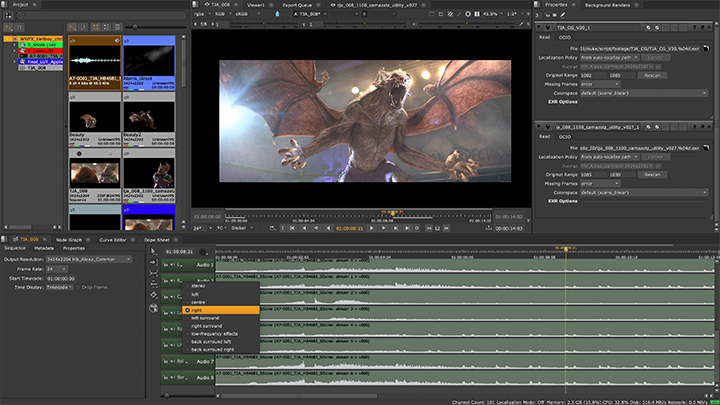
Surround Sound Audio Support
Introducing multichannel audio support in Nuke Studio, Hiero and HieroPlayer. We’ve added multichannel audio patching to your timeline, so when you import 5.1 and 7.1, or individual audio files, and place them on your timeline, the audio tracks will now have the ability to patch to different output speakers (eg. LFE, Center, SR). The audio output can be set up using monitor out devices or specific audio cards.
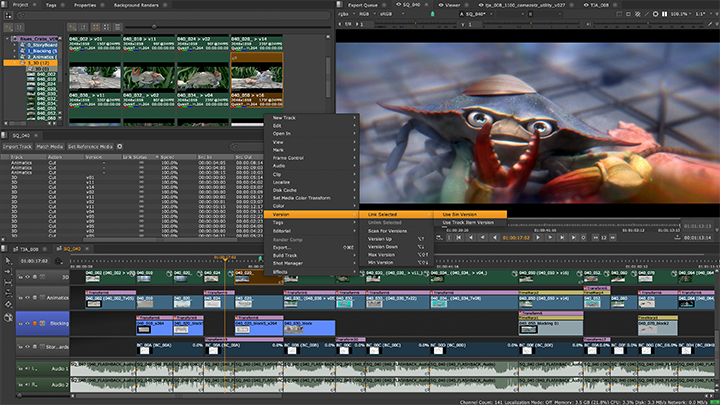
Bin and Track Item Version Linking
A new behavior links source clip versions between a project bin item and its corresponding track items. Now, changing the version of a clip on the project bin, or on a sequence, will change all other instances of the same clip that exist in the same sequence or in any other sequences. This streamlines the process of updating sequences, for example when propagating changes across 10, 30, and 60-second cuts of a project. Version linking is set to ‘On’ by default and can be set manually in the timeline, project bin, and Preferences.
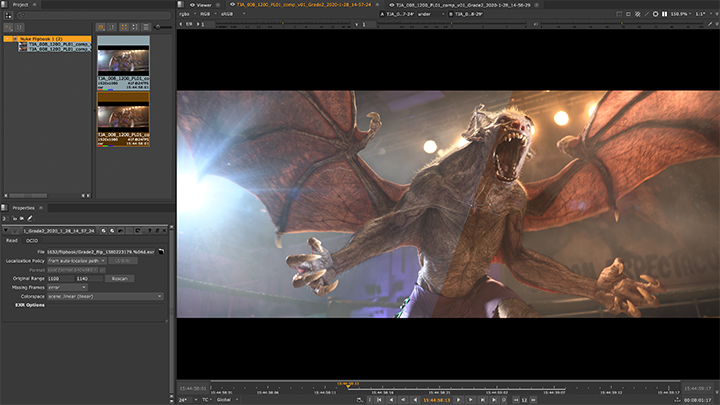
HieroPlayer as Flipbook in Nuke
Nuke 12.1 includes the ability to use HieroPlayer as a flipbook tool for Nuke and NukeX, giving artists more control when comparing different versions of their work. HieroPlayer will auto-detect the OCIO config and viewer colorspace coming from the Nuke script and set up the files being reviewed correctly, whether you are working on a single script or in multiple scripts at one given time. HieroPlayer can be set as the Flipbook in the UI and in the Preferences.
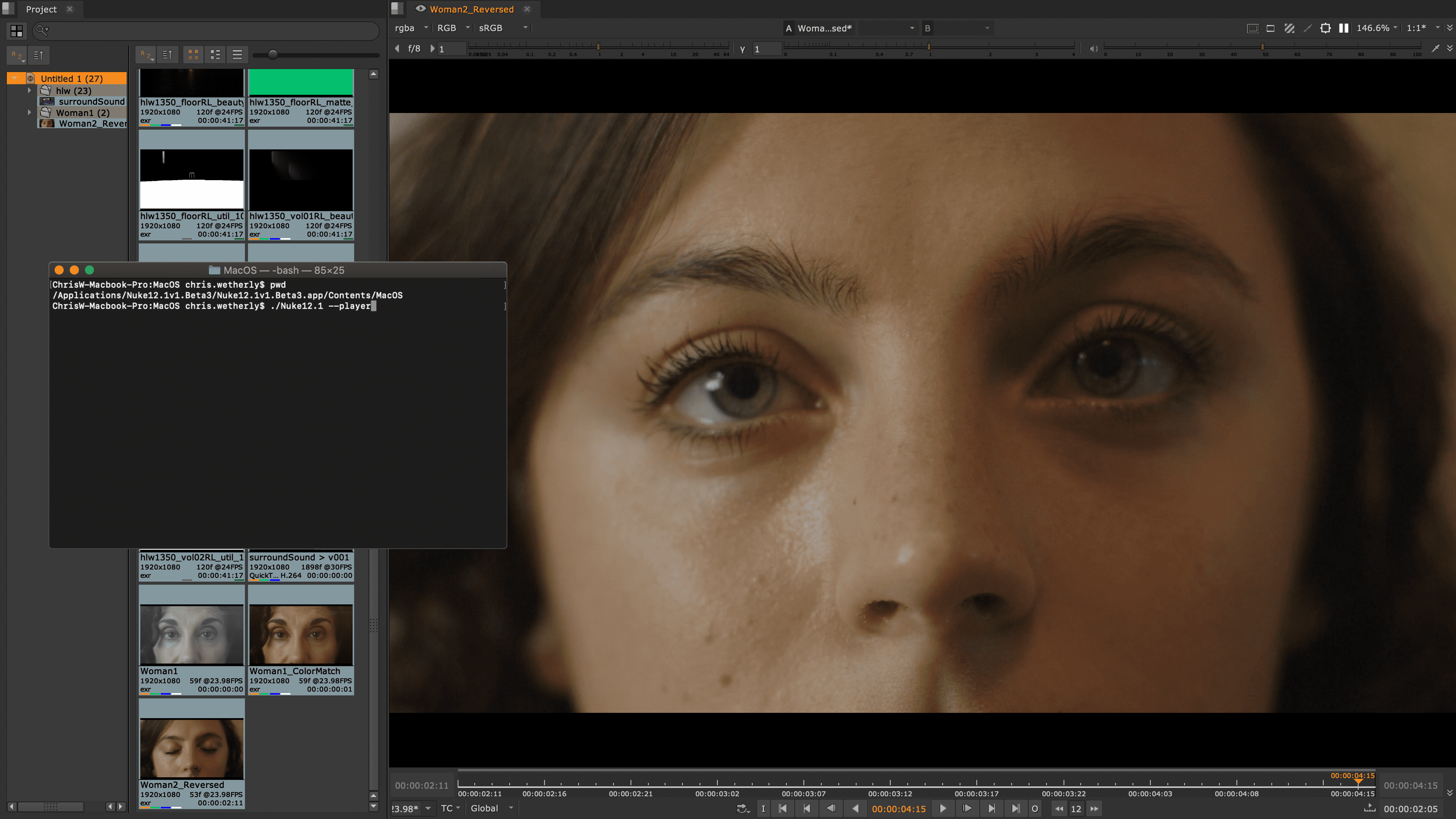
Faster HieroPlayer Launch
New instances of HieroPlayer will now launch faster, improving artists’ overall experience when using HieroPlayer as a flipbook tool. We’ve been able to increase launch speeds for new instances of HieroPlayer on Windows and macOS by a factor of 1.2x and on Linux, we’re seeing an increase of up to 1.5x in our internal tests.
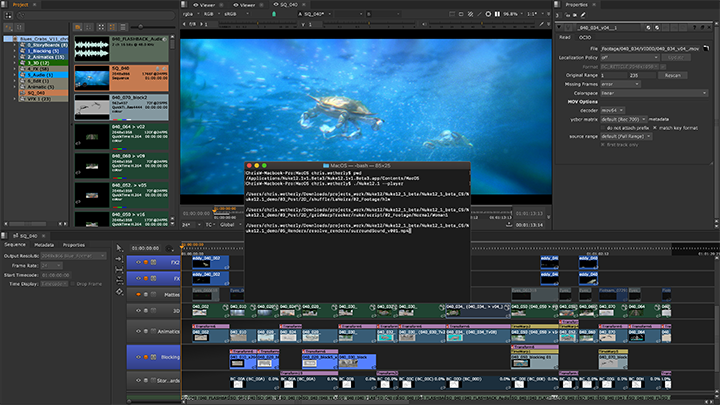
Expanded Launch Options
Nuke Studio, Hiero and HieroPlayer now offer the ability to dynamically load files and folders into the project bin by entering the file path in the terminal. This speeds up launching Nuke Studio, Hiero, or HieroPlayer to review any supported file type.
Infrastructure and Standards
High DPI Windows and Linux
This release adds support for UI scaling when using high-resolution monitors on Windows and Linux. This brings all platforms inline (with high-resolution display support added for macOS in Nuke 12.0v1).
ARRI Updates
Nuke 12.1 includes several updates and extensions to support for ARRI cameras including ArriRAW SDK version 6.2.1.0, GPU debayering feature via CUDA, Codex HDE .arx Arri RAW, Arri Alexa Mini LF support and ProRes wrapped MXFs from the Alexa Mini LF (ARRIRAW/MXF).
QuickTime and MXF Improvements
Nuke 12.1 includes several updates to supported codecs, improving user experience when working with these file types.
Building on the work to add support for DNxHR MXFs in Nuke 12.0, in this release Nuke now supports reading of DNxHR .movs and writing of DNxHR MXFs.
When reading .mov and .mxf ProRes files you can now use metadata to set colorspace in Nuke. You can also parse the frame header to get transfer characteristics if not found in file metadata of MXF or MOV files—this change will have an impact on scripts loaded from older versions of Nuke. Support for Motion JPEG B, encoded QuickTime, has been added to the mov64 Reader in Nuke and Nuke Studio and mov64 Writer in Nuke. This re-enables support for this codec on macOS Catalina and introduces support on Windows.